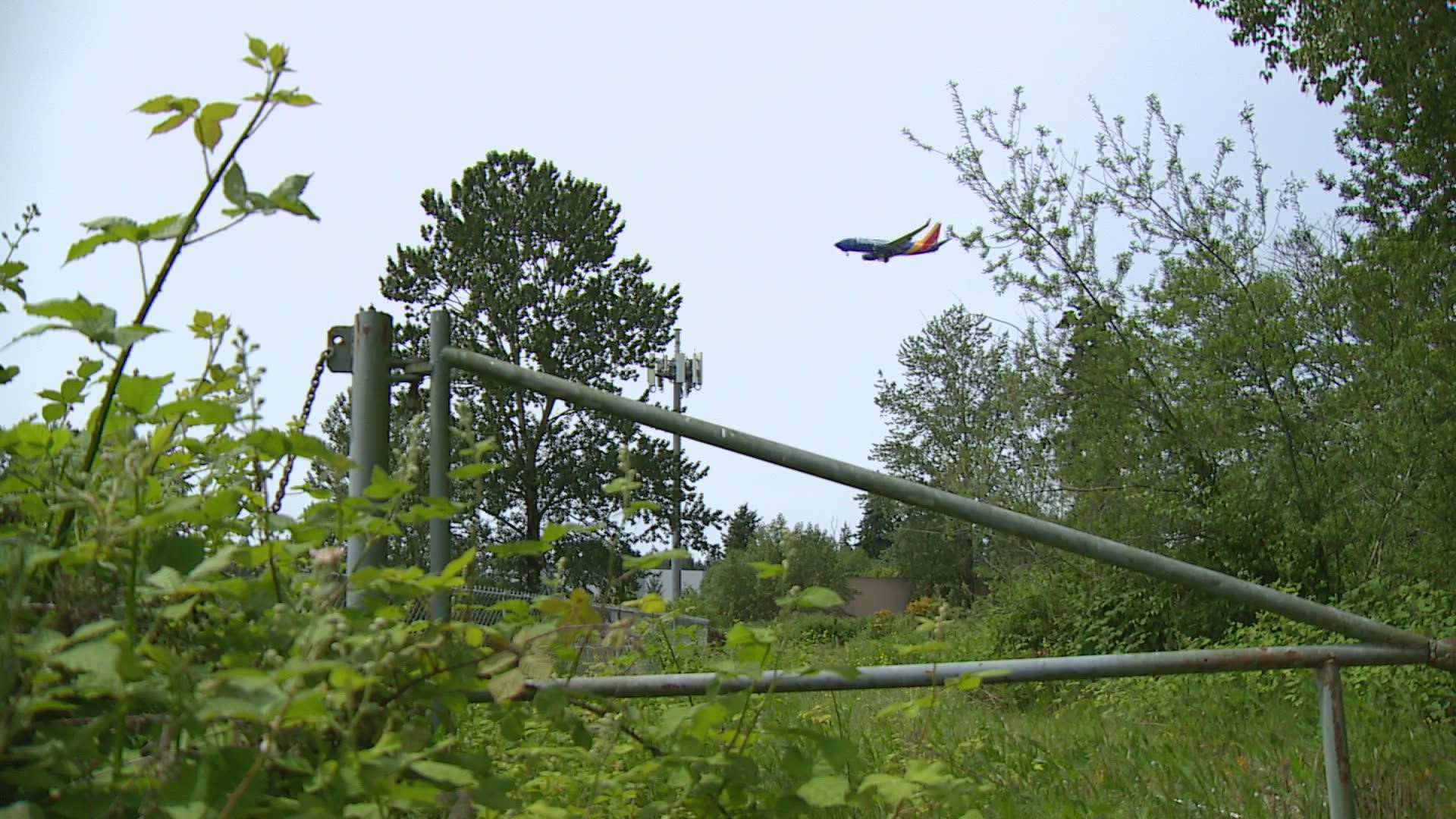SEATTLE — Neighborhoods around Seattle Tacoma International Airport have to deal with the sound of planes flying over every day.
Both the Federal Aviation Administration (FAA) and the Port of Seattle, which oversees the airport, have spent millions installing home insulation to help reduce the roar of engines. However, many of those systems are now 20 to 30 years old and failing.
Debi Wagner can name the planes flying by, just by their sound. She originally moved to Des Moines in 1979 and said at the time, the airport wasn't that busy.
She noticed a change in the 1990s. One night, the sound of a cargo plane jolted her awake.
"It didn't normally occur and it was frightening and I had children and I wondered what would happen if something occurred or an accident."
She ended up moving again and again, each time under a new flight path.
Her home was insulated through a program funded by the FAA and the Port of Seattle. Some of the homes helped by the program now have insulation that's 20 to 30 years old.
"I started hearing from homeowners in the district that they were having troubles, these packages were no longer working, they were having trouble sleeping at night, the noise was unbearable," said state Rep. Tina Orwall.
Wagner eventually moved to Idaho, but her son still lives in this Des Moines home.
"The sound infiltrates the walls. It's quiet enough at night that it still disturbs us," said Wagner.
Orwall, Congressman Adam Smith and the Port of Seattle have all worked to fix homes. A bill was passed to fix the insulation in houses built after 1990. Now, they're looking for funding.
"When people can't sleep at night, that leads to health impacts -- chronic stress, hypertension, cardiovascular disease. It impacts kids and their learning," said Orwall.
Sea-Tac was a leader in its insulation programs. Since 1985, the Port of Seattle has spent $300 million insulating more than 9,000 homes. Currently, it's expediting the process and doing the insulations before it receives grant money, Port officials said.
"We understand the impact that an airport has on the area communities and we support anyway in which to give us more tools, resources, and flexibility to help in any way that we can," said Perry Cooper with the Port of Seattle.
A hurdle for all of these agencies is the lack of federal rules, something the FAA says it is making changes to.
Meanwhile, Wagner said she wants answers, "We know it's not safe but we know it's long term. Are the health impacts immediate or are they down the road? We don't know."

